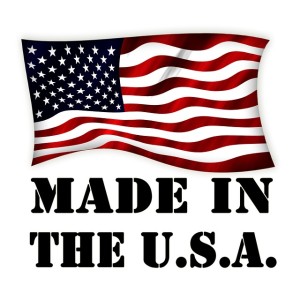 Mindspot Research updated the article, Benefits of Reshoring-Bringing Manufacturing back to the USA on April 17, 2020.
Mindspot Research updated the article, Benefits of Reshoring-Bringing Manufacturing back to the USA on April 17, 2020.
When manufacturing jobs move overseas we wondered if total landed costs are considered. And, if now an even stronger argument can be made for bringing manufacturing back to the USA.
This logistics practice is known commonly as “reshoring.”
Given the recent Trade War with China and the supply chain disruptions caused by the Covid 19 outbreak, it’s a good time to re-visit this topic. The thought process behind reshoring is bringing manufacturing back to the domestic manufacturer.
We as a nation are gaining a new perspective about the risks of a non-geographically diversified and a foreign-dependent supply chain. Interestingly, there is a significant monetary argument to be made to encourage business to manufacture more frequently in the USA bringing jobs back to the United States. There are hard-cost benefits to reshoring.
The risk analysis for manufacturing in the United States is far more straight-forward than using an offshore source. At one extreme, having your company name associated with a tragedy or inability to meet consumer needs at times of crisis has brand and business risk. At a minimum uncertain raw materials, process stability, and quality standards will exact unknown (and unexpected) costs, not to mention sleepless nights. The expanse of US regulations from watchdog organizations, industry designed and self-promoted, and government-based provide for many layers of product protection stripped away from manufacturing that is taken offshore.
Mindspot Research has a long-term manufacturing client who has been in business for 30 years. ASH Industries, based in Lafayette, Louisiana, offering a range of engineering services and manufacturing processes.
ASH addresses client needs from rapid prototyping to final assembly & custom packaging. Among ASH’s customers that cover the gamut of US Industry, from defense to medical and electronics to industrial, there is considerable pressure to outsource manufacturing work to places like Mexico and China.
Over recent years, Hartie Spence CEO of ASH Industries tells us that “While competing with China on a piece-part basis is not always possible, more and more observant customers do appreciate the impact that a knowledgeable US-based manufacturer can have on reducing total product cost, increasing reliability, and shortening the timeline between concept to completion.”
Mr. Spence acknowledges that the argument for getting products from China because “it is so much cheaper” may, in fact, be limited to a range of products for which unit cost consideration far exceeds quality, manufacturing consistency, and communication needs. However, if the total landed cost is calculated along with manufacturing difficulties and inconsistencies, then the argument for “offshore” does start to disintegrate.
Additionally, consider that the number of defects per million parts will vary by the type of manufacturing.
For example, if soldering parts is involved that is typically what causes the majority of the defects. If no soldering is involved it will be something else (i.e. pick and pack).
Using a Six Sigma process improvement methodology the acceptable defects per million (DPMO) is 3.4. It is widely commented on that other countries have a higher defect per million number than the United States.
Recent examples include solar panels manufactured in China with defect rates ranging from 5%-22% according to the New York Times. Perhaps that doesn’t seem like a lot. However, if we apply this to something that we are all used to like medical prescriptions; consider that 99% quality (3.8 sigma) and 99.9997% quality (6 sigma) is the difference between 200,000 wrong drug prescriptions a year and 68 wrong drug prescriptions a year.
Here are 15 potential hard cost benefits associated with “reshoring,” which is bringing manufacturing back to the USA from another country:
• Shorter delivery times/Faster
• Lower transportation costs
• Fewer defects
• Shipments not held at customs
• Reduces exchange rate risks
• Political stability
• Economic stability
• Established worker safety compliance (building, working conditions, # of hours worked)
• Established materials safety compliance (contamination)
• Stamp it “Made in the USA”
• Supports the U.S. economy by employing U.S. workers
• Reduces risk of being associated with negative events/PR
• U.S. plants are more established/higher number of years in business
• More world-class manufacturers in the United States
• Customer Service
If we consider the total landed cost it may be more cost effective to manufacture in the USA versus outside the USA. The potential total landed cost benefit plus the benefit of being able to forecast less supply chain disruption is an argument for reconsidering reshoring manufacturing.
By Lynnette Leathers CEO of Mindspot Research and Lead Logistics Supply Chain Consultant/Moderator

